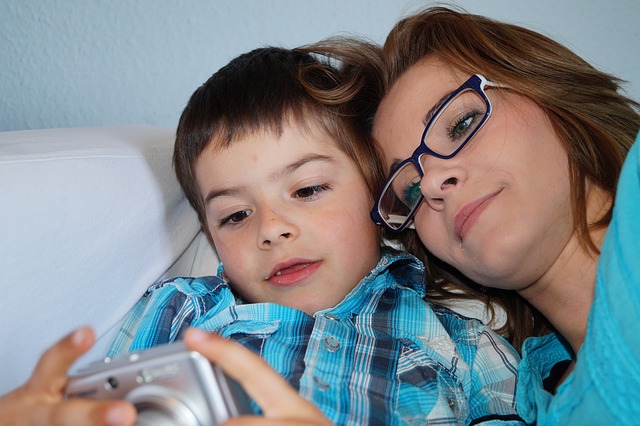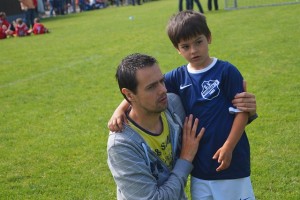- Calls to this hotline are currently being directed to Within Health, Fay or Eating Disorder Solutions
- Representatives are standing by 24/7 to help answer your questions
- All calls are confidential and HIPAA compliant
- There is no obligation or cost to call
- Eating Disorder Hope does not receive any commissions or fees dependent upon which provider you select
- Additional treatment providers are located on our directory or samhsa.gov
Finding Eating Disorder Specialists for Pediatric Patients

Contributor: Leigh Bell, BA, writer for Eating Disorder Hope
The number of young children struggling with body image and eating disorders has skyrocketed over the last couple of decades. In fact, between 1999 and 2006, the number of kids under age 12 – some as young as 7 or 8 – hospitalized for eating disorders increased by 120%. [1]
These fragile young people account for around 3% of all those with eating disorders. [2] So looking for a professional who specializes in the treatment of children with eating disorders may require some extra searching.
The Difference in Treatment
The vast majority of treatment centers accept patients no younger than 16, sometimes 14; and understandably so, as individuals younger than this require care beyond eating-disorder treatment.  Family therapy will be much more important for children with eating disorders, and many other aspects of treatment, such as group therapy and nutrition, differ from those of older patients.
Family therapy will be much more important for children with eating disorders, and many other aspects of treatment, such as group therapy and nutrition, differ from those of older patients.
If you think a child may have an eating disorder, realize some criteria for the illness may not apply to someone so young, someone who is growing and maybe more active than someone older with an eating disorder.
Signs to Look For
If you do notice apparent signs of an eating disorder, such:
- rapid weight loss,
- refusal to eat,
- social withdrawal,
- and/or frequent trips to the bathroom, especially after meals, talk to your child’s pediatrician.
This physician can rule out other causes of these symptoms and may be able to help treat your child’s eating disorder or refer you to a specialist who can.
 You can also contact your insurance company to see any eating-disorder specialists (especially those for pediatric patients) are in the network. If you find treatment centers that do take younger children, call and ask if they can have referrals nearby. Oftentimes, they will.
You can also contact your insurance company to see any eating-disorder specialists (especially those for pediatric patients) are in the network. If you find treatment centers that do take younger children, call and ask if they can have referrals nearby. Oftentimes, they will.
Meanwhile, talk to your child using these tactics: [3]
Address your child in a calm and caring way. Tell them why you’re worried: What have you seen or heard? Try using “I” instead of “you” statements.
Listen carefully to what your child says. He or she may be scared or feel out of control and/or ashamed about these issues.
It’s normal for a child with an eating disorder to deny it. Continue telling him or her you want to help; and you may have to do this several times.
Find referrals for your child here:
Eating Disorder Hope: (888) 274-7732
National Eating Disorder Association: (800) 931-2237
National Association of Anorexia and Associated Disorders: (630) 577-1330
Community Discussion – Share your thoughts here!
Has your pediatric child struggled with eating disorders? Who did you first reach out to for help? What advice do you have to share?
 About the Author: Leigh Bell holds a Bachelor of Arts in English with minors in Creative Writing and French from Loyola Marymount University in Los Angeles. She is a published author, journalist with 15 years of experience, and a recipient of the Rosalynn Carter Fellowship for Mental Health Journalism. Leigh is recovered from a near-fatal, decade-long battle with anorexia and the mother of three young, rambunctious children.
About the Author: Leigh Bell holds a Bachelor of Arts in English with minors in Creative Writing and French from Loyola Marymount University in Los Angeles. She is a published author, journalist with 15 years of experience, and a recipient of the Rosalynn Carter Fellowship for Mental Health Journalism. Leigh is recovered from a near-fatal, decade-long battle with anorexia and the mother of three young, rambunctious children.
References
[1]: Culp-Ressler, T. (2015, January 21). Kids Start Struggling With Body Image Issues Earlier Than You May Think. Retrieved January 2, 2016.[2]: Natenshon, MA, LCSW, GCFP, A. (n.d.). AbigailNatenshon.com – When Young Children Have Eating Disorders. Retrieved January 2, 2016.
[3]: Boyse, K. (2010, October 1). University of Michigan Health System. Retrieved January 3, 2016.
The opinions and views of our guest contributors are shared to provide a broad perspective of eating disorders. These are not necessarily the views of Eating Disorder Hope, but an effort to offer discussion of various issues by different concerned individuals.
We at Eating Disorder Hope understand that eating disorders result from a combination of environmental and genetic factors. If you or a loved one are suffering from an eating disorder, please know that there is hope for you, and seek immediate professional help.
Last Updated & Reviewed By: Jacquelyn Ekern, MS, LPC on January 26, 2016
Published on EatingDisorderHope.com

The EatingDisorderHope.com editorial team comprises experienced writers, editors, and medical reviewers specializing in eating disorders, treatment, and mental and behavioral health.

